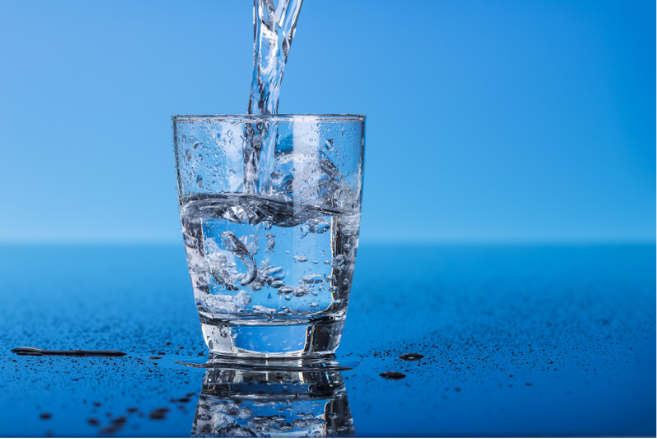Why a Water Purification System is Necessary for Every Home
Why a Water Purification System Is Important for Tidy, Safe Water
Access to tidy, risk-free water is a fundamental human right and a keystone of public health. The presence of unsafe pollutants such as virus, heavy metals, and chemical toxins in our water supply increases severe issues regarding wellness and wellness. A water purification system stands as a critical solution to mitigate these risks, ensuring that individuals and communities can access safe alcohol consumption water. Comprehending the complexities of these systems and their different approaches is vital, especially as we think about the implications for health and wellness outcomes and ecological sustainability in our daily lives.
Relevance of Clean Water
Accessibility to tidy water is an essential requirement for human health and wellness and health. It is vital for maintaining life, sustaining hygiene, and maintaining general public wellness. Water Purification System. The accessibility of safe drinking water considerably lowers the danger of waterborne illness, which present a considerable hazard to neighborhoods worldwide. Polluted water can bring about significant wellness issues, consisting of intestinal health problems, cholera, and dysentery, especially in prone populations such as kids and the senior.
Moreover, clean water is critical for sanitation and health techniques, which are important in protecting against the spread of transmittable illness. Sufficient water system supports proper sanitation centers, advertising a healthier atmosphere. Furthermore, access to risk-free water affects socioeconomic variables, as it makes it possible for communities to participate in farming and commercial activities, ultimately adding to financial growth.
In lots of regions, the lack of clean water exacerbates hardship and inequality, more hindering progress toward sustainable advancement goals. Making certain accessibility to tidy water is not just a public health and wellness imperative however also a keystone for social equity and financial development. Efforts to improve water high quality and infrastructure have far-reaching advantages, cultivating much healthier areas and enhancing high quality of life.

Usual Pollutants in Water
Making sure the accessibility of tidy water is weakened by different impurities that can jeopardize its safety and security and top quality. The visibility of microorganisms, such as infections, bloodsuckers, and bacteria, poses significant health and wellness dangers, specifically in areas doing not have appropriate sanitation. These bacteria can bring about waterborne conditions, leading to extreme ailment or also death.
Chemical impurities likewise offer an essential worry. Hefty steels, including arsenic, mercury, and lead, frequently go into water products with industrial discharges or rusty pipes. These materials can gather in the body in time, resulting in lasting health and wellness problems such as neurological damage and developmental problems.
In addition, agricultural drainage presents pesticides and plant foods right into water supply, which can disrupt ecological communities and negatively influence human health and wellness. Nitrates, typically found in fertilizers, can trigger significant problems like methemoglobinemia, specifically in babies.
Advantages of Water Filtration Systems
Acknowledging the essential requirement for secure drinking water, water purification systems use a myriad of advantages that boost public wellness and ecological sustainability. Largely, these systems properly get rid of harmful pollutants, consisting of bacteria, infections, hefty metals, and chemicals, ensuring that the water eaten is complimentary from pathogens and contaminants. This decrease in contaminants dramatically reduces the threat of waterborne diseases, advertising total area health and wellness.
In addition to health and wellness advantages, water purification systems contribute to environmental sustainability by reducing dependence on mineral water, which frequently generates too much plastic waste. By making use of a purification system, households can decrease their carbon footprint and contribute to a more lasting ecosystem. These systems can enhance the taste and smell of water, making it extra palatable for daily consumption.

Various Kinds Of Filtration Approaches

One usual approach is reverse osmosis, which uses a semi-permeable membrane layer to different water from liquified solids and impurities. This process properly minimizes contaminations, consisting of hefty steels and chemicals. An additional extensively used strategy is ultraviolet (UV) disinfection, which utilizes UV light to counteract germs and viruses, rendering them safe without the use of chemicals.
Triggered carbon purification is another preferred strategy, using carbon to adsorb organic substances, chlorine, and unpleasant smells, improving taste and smell top quality. Purification, a procedure resource that entails boiling water and condensing the heavy steam, efficiently removes impurities and minerals but might require even more energy compared to other techniques.
Ion exchange is usually utilized to soften water by replacing calcium and magnesium ions with salt or potassium ions. Each technique has its restrictions and benefits, making it vital to understand their functionalities and effectiveness in dealing with particular water quality issues - Water Purification System. Ultimately, choosing the suitable filtration method is essential for making sure risk-free and clean drinking water
Picking the Right System
Selecting a proper water filtration system requires mindful consideration of numerous aspects, consisting of the particular pollutants existing in the water, the volume of water required, and the wanted filtration method. First, it is imperative to carry out a water quality examination to identify pollutants such as germs, heavy steels, or chemical toxins. This info will guide you in choosing a system that successfully targets those specific contaminations.
Next, analyze your household's everyday water intake to figure out the system's ability. Solutions are offered in different dimensions, from point-of-use filters for alcohol consumption water to whole-house units that detoxify all water entering your home.
Additionally, think about the purification technique that best fits your demands. For example, reverse osmosis is very effective for removing a vast array of impurities, while UV filtration is exceptional for getting rid of bacteria.
Verdict
Finally, the execution of water filtration systems is vital for guaranteeing accessibility to tidy and secure water. These systems effectively eliminate harmful impurities, consequently minimizing the risk of waterborne diseases and boosting public health and wellness. They contribute to ecological sustainability by minimizing reliance on bottled water. By recognizing the value of tidy water and the benefits of numerous filtration techniques, areas can make educated decisions to secure their health and wellness and advertise socioeconomic security.
Recognizing the essential demand for secure alcohol consumption water, water filtration try these out systems use a myriad of advantages that enhance public wellness and ecological sustainability.In addition to wellness advantages, water filtration systems add to ecological sustainability by minimizing reliance on bottled water, which often generates extreme plastic waste. Eventually, the adoption of water filtration systems is a proactive action towards making certain tidy, secure water for future generations while safeguarding public health and the atmosphere.
Choosing a suitable water filtration system requires cautious factor to consider of various aspects, consisting of the particular pollutants present in the water supply, the quantity of water needed, and the preferred filtration approach.In conclusion, the execution of water purification systems is crucial for ensuring access to safe and tidy water.